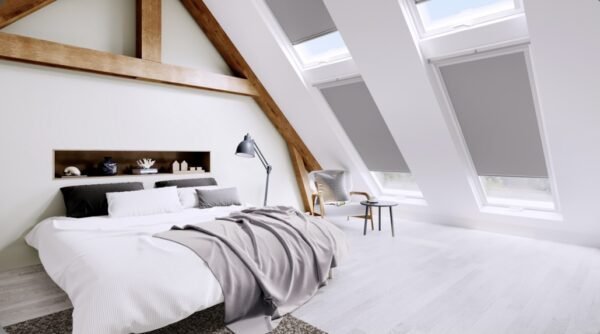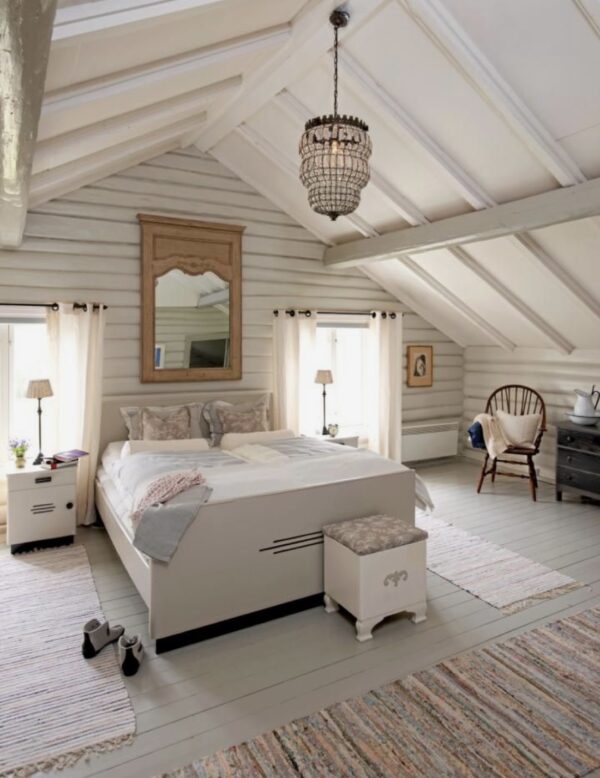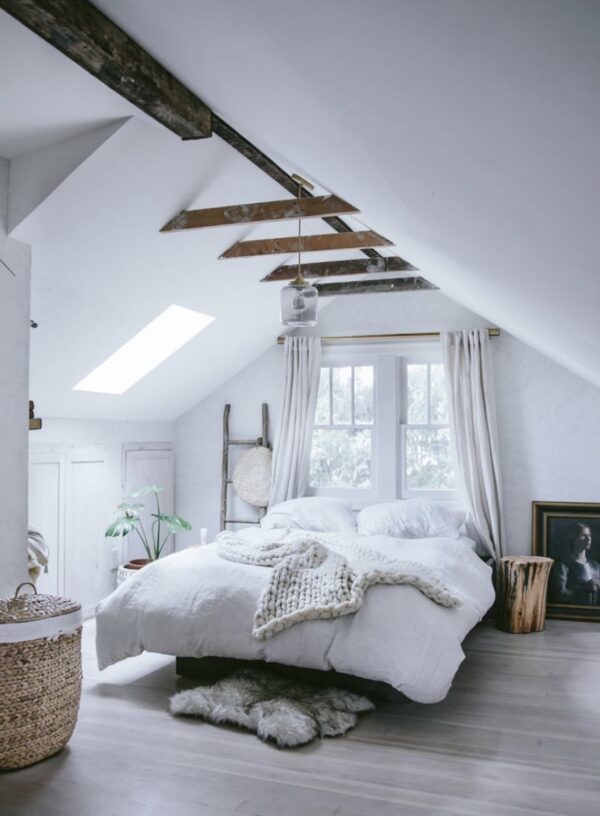
Why Choose a Loft Conversion Over a House Extension?

In 2022 over three quarters of us have spent money changing or improving our properties, with over 50% doing so as a result of spending more time at home throughout the Covid-19 pandemic. For some, that means some new soft furnishings, or excitedly embracing the houseplant trend (there’s been a 10-15% annual increase on the sales of houseplants in the UK since 2013!). For others, there’s a more substantial investment to be made with a larger renovation like an extension, or a loft conversion.
Choosing between the two, though, can be a challenge. It’s not a small amount of money you’re investing, at around £21,000 – £44,000 for a loft conversion (on average) and £30,000 – £60,000 for a house extension (on average). So, you can’t really make the decision on a whim. Not to mention the time, energy and disruption involved in any house renovation.
There are, however, some clear signs that a loft conversion is a better option for you. Let’s take a closer look at the differences between the two, and why a loft conversion might make more sense for your home.

What Is The Difference Between A Loft Conversion And A House Extension?
A house extension is a single or multi-storey addition to a property that extends its footprint out. Usually, this is at the back, towards the garden, although it can be anywhere on the owned land of the home extending from any part of the property, as long as it is safe and legal to do so.
A loft conversion is the conversion of the existing space between the top floor ceilings and the roof. It does not use any outdoor garden space and can sometimes be done without any Planning Permission at all, although Building Regulations always need to be met. If your roof needs Roof System Cleaning or any adjustments before you can proceed with the loft conversion, you may have to hire a roofing contractor. Professionals can perform a roof cleaning more effectively than if you were to do it yourself, and with no risk to your person to boot.
Why Choose A Loft Conversion Over A House Extension?

Every individual home and family has different requirements. However, in some situations loft conversions just make more sense. Let’s take a look at loft conversions and why they might be a better option for your home, compared to a house extension:
You’re Only Choosing An Extension Because Of Usability
There’s a bit of a myth out there that house extensions are for any kind of usable space that you want, but loft extensions are only useful if you want to add a bedroom. In fact, this really isn’t true at all.
If you’re only choosing an extension for this reason, you’ll be pleased to know that loft conversions can be far more than a bedroom. Discover all the loft conversions you can do with Elite Loft Conversions. Skylight conversions are the most limiting, yes, and may only provide space for one room. However, all other types of conversion can usually include an en-suite bathroom, and something like a large L-shaped conversion could even include a kitchen or kitchenette, en-suite, living space and more. So, before making your decision, do ask the professional loft conversion company about the possibilities.
Planning Permission Is A Hurdle
For house extensions and loft conversions you do need to meet Building Regulations, and usually you do require Planning Permission for a house extension. However, for some loft extensions you do not need Planning Permission and the design will fall under something called Permitted Development. This makes things a lot speedier and easier overall.
The best news is, professional loft conversion companies will be able to guide you through the entire process to make sure that you have all the paperwork in line before any work goes ahead.
You Want To Save Garden Space
Throughout the pandemic we all became much more aware of how precious our own outdoor space really is.
Over seven million people took up gardening, which is known to be highly beneficial to your mental and physical health. Others tried out birdwatching, or simply just embraced being in the garden to read or sunbathe – a small slice of openness and freedom at a time when the world was very closed and locked down.
Gardens have not lost that value since the pandemic at its peak. In fact, garden space is more valuable than ever and post-pandemic, you could be looking at a 7% increase in the value of your home just because of a well-kept garden. In London especially, there has been a 20% rise in the term ‘garden’ being searched on property sales sites.
If there is one thing an extension impacts, it is your garden space. It has to take up some of your land to increase the property’s footprint. Loft conversions simply don’t do that because you’re building up, not out. So if you want to hang on to this valuable little slice of nature, loft conversions are a natural choice.
You Don’t Have A Garden
One in eight British homes has no garden, and that rises to one in five in London. That means you may feel stuck, because you need to expand, and you love where you live, but there is no space to spread out. Luckily, you can extend upwards in London with a loft conversion, and you don’t have to worry about a lack of garden space holding you back.
You Don’t Want Lots Of Disruption
When you have a house extension you often have to move out of the house, potentially for months, or even over a year if you have a large extension done. With a loft conversion, that is often not the case, but if you do need to move out whilst the work is done, it isn’t for as long.
Time Is A Factor
Overall, the time involved in a loft conversion is less than an extension because there is no need to add foundations or other groundwork before building can begin. It does depend on the type of conversion that you have, of course, and a professional loft conversion company can give you a time estimation for the conversion you are considering. Overall, though, if time is a factor, a conversion may well be the right route to go down.
You’re Looking For The Best Boost Of House Value
It can often be wrongly assumed that an extension will add more value to a house than a loft conversion, but that isn’t necessarily the case. An extension can add about 5-8% to the value of your home, but a loft conversion can add 20% onto the value of your home, depending on the type that you choose to have.
Of course, every property is different and every situation is different, and the only way to really know is to get some quotes and speak to an estate agent to get an idea of numbers. It’s important not to make any assumptions, though, because loft conversions can be highly impactful on the value of a home and various factors come into that estimated value increase far beyond the type of home improvement that is added.
Why Not Speak To A Professional Loft Conversion Company For A Quote?
There are many reasons a loft conversion could be the right choice of home improvement for you, but the fact is it is individual to each family and their home as to what is right. The first step is to speak to a professional loft conversion company for a quote, so that you can gain an understanding of what is possible, and how a conversion could truly transform the function and usability of your home.














































